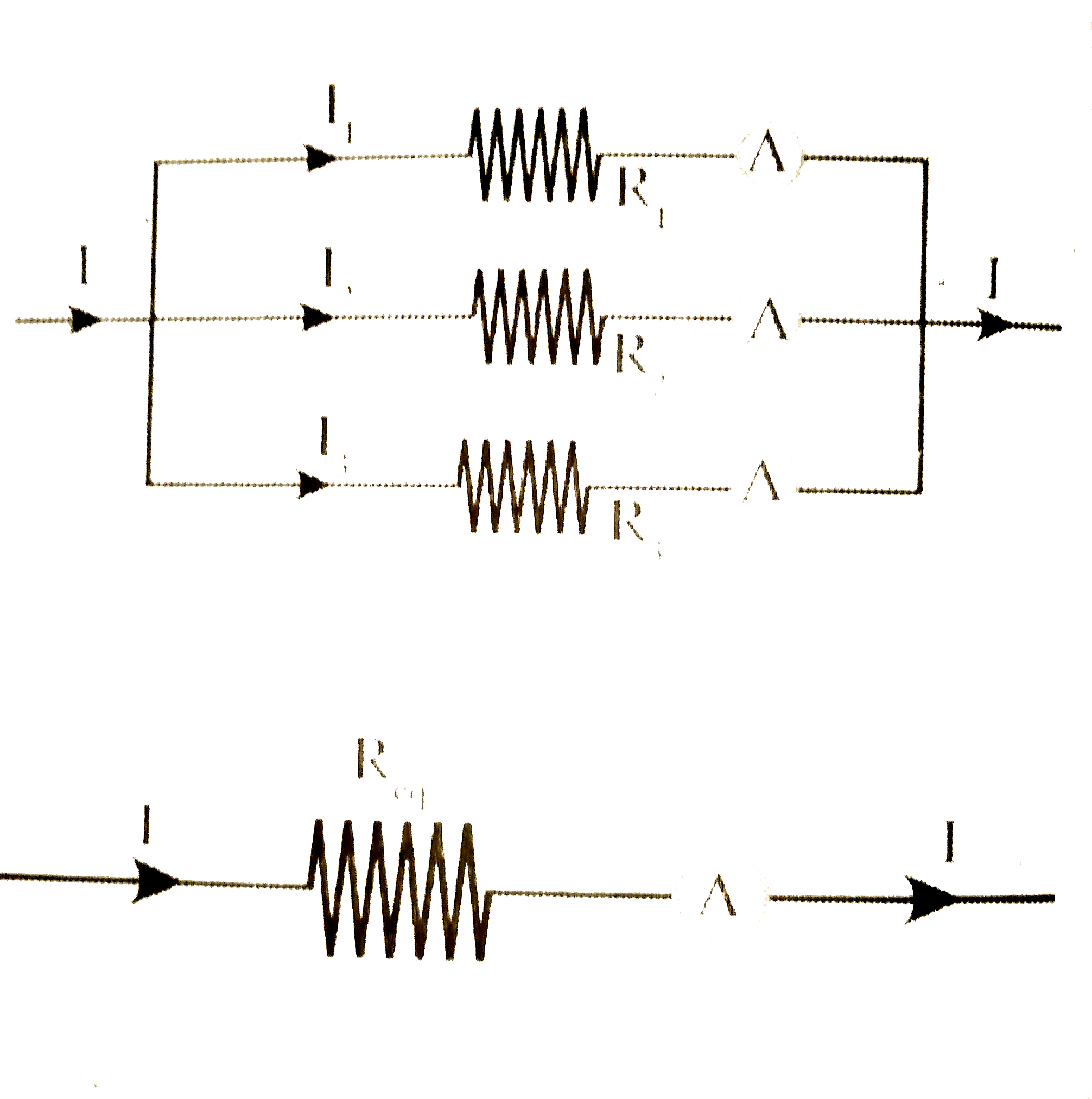Saved Bookmarks
| 1. |
Derive an expression for the effective resistance when three resistors are connected in (i) series (ii) parallel. |
|
Answer» Solution :PARALLEL Connection : In Parallel connection of resistors there is same potential difference at the ends of the resistors. HENCE the voltage in the circuit is EQUAL to V. Let `I_(1),I_(2)andI_(3)` be the currents flowing through `R_(1),R_(2)andR_(3)` resistors respectively. Hence, we can write `I=I_(1)+I_(2)+I_(3).` According to the Ohm's law. `V_(1)=1_(1)R_(1),V_(2)=I_(2)R_(2),V_(3)=I_(3)R_(3)` here,`V=V_(1)=V_(2)=V_(3)` `thereforeV=I_(1)R_(1),V=I_(2)R_(2),V=I_(3)R_(3)` `rArrI_(1)=(V)/(R_(1)),I_(2)=(V)/(R_(2))andI_(3)=(V)/(R_(3))` `thereforeI=I_(1)+I_(2)+L_(3)` `rArr(V)/(R_(eq))=(V)/(R_(1))+(V)/(R_(2))+(V)/(R_(3))` `rArrcancel(V)xx(1)/(R_(eq))=cancel(V)[(1)/(R_(1))+(1)/(R_(2))+(1)/(R_(3))]` `rArr(1)/(R_(eq))=(1)/(R_(1))+(1)/(R_(2))+(1)/(R_(3))(" here " R_(eq)" is the equivalent resistance ")` `therefore` The equivalent resistance of a parallel combination is less than the resistance of each of the resistors. 
|
|
Discussion
No Comment Found
Related InterviewSolutions
- What is the reason for the twinkling of stars ?
- The change in magnetic field lines in a coil is the cause of induced electric current in it.Name the underlying phenomenon.
- Say True or False.The mass of the Earth is 6.4xx10^(6)kg.
- Whichof the follwing property of a proton can changewhileit moves freelyin a mageticfield ? (There may be more thanone correct answer).
- When an object is placed infront of a spherical mirror at a distance 30 cm, the magnification is -1. Illustrate the conclusions.
- Does the frequency of sound waes depend on the medium in which it travels?
- The relation between N (no. of molecules), P,V. & T is ...........
- What is magnification of a lens ?
- A person is said to be colour blind if he/ she has deficiency of rod shaped cells in retina of his eyes.
- "___________" prepares the 'Red List' that contains the names of endangered species from different countries.